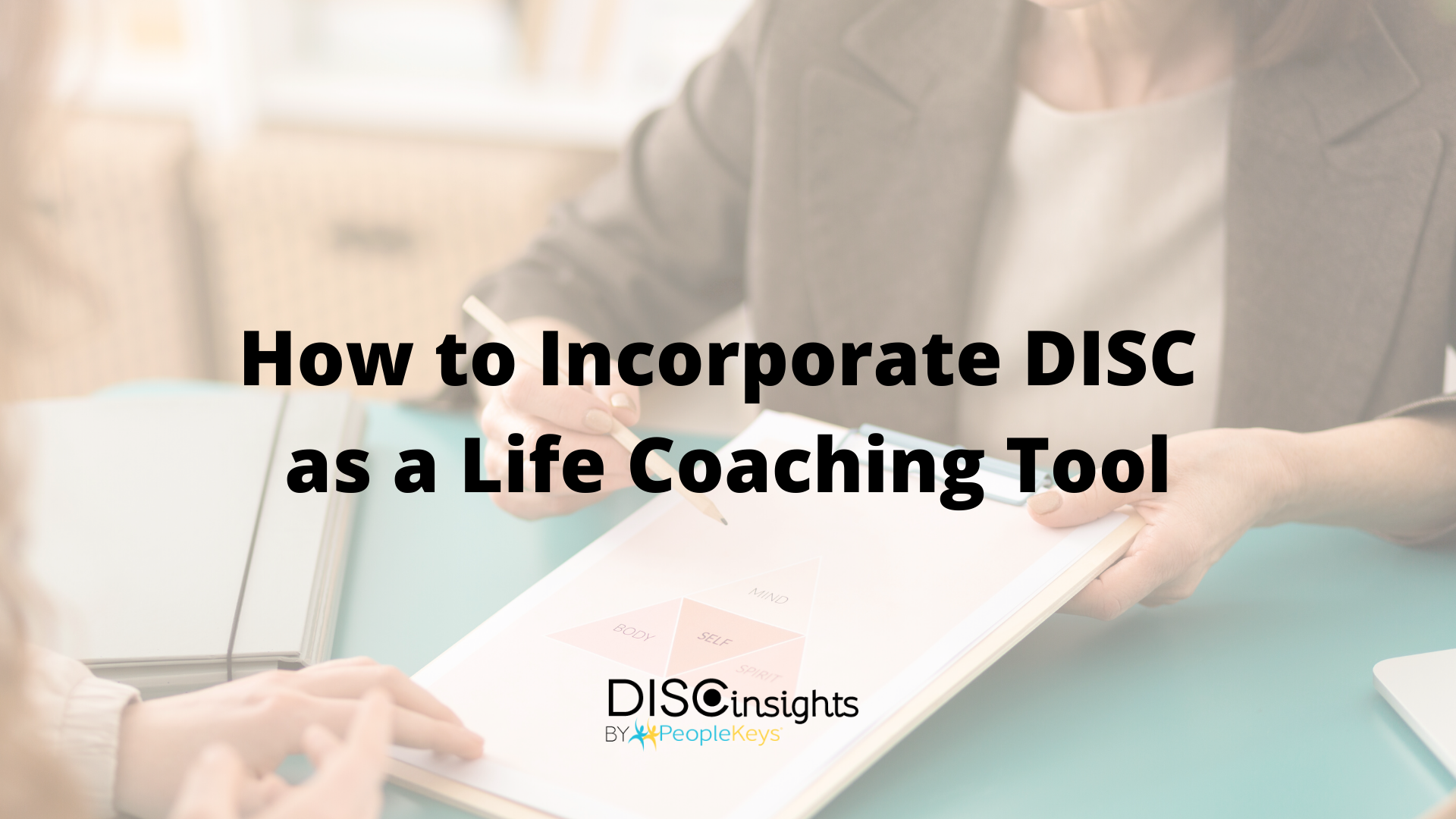- SHOP BY PRODUCT
- DISC TRAINING & CERTIFICATION TOOLS
- DISC RESOURCES
- BLOG
- SHOP BY PRODUCT
- DISC TRAINING & CERTIFICATION TOOLS
- DISC RESOURCES
- BLOG
- ALL ITEMS



Life Coaching is a rapidly growing industry filled with people who desire to serve others by helping them increase self-awareness, discover their strengths, achieve personal and professional goals, and transform into the best version of themselves. Every coach develops a passion, based on personal experience, interests, or educational background, which often transitions them into identifying their unique focus area or niche.
A simple online search will yield results to help you find coaches specializing in health and wellness, financial planning, business development, organizational leadership, executive communication, education, and relationships, to name a few. So, if they're all different, why are they called “life” coaches? Well, it's a personal choice, depending on how the individual prefers to brand or market themselves. Some may seek to appeal to a more corporate or specialized market or client base; others may prefer to operate in a more fluid environment.
Many misconceptions are surrounding the role of a life coach; they do not merely provide unsolicited advice or offer opinions on past decisions or lifestyle choices. Some people may seek a life coach when they find themselves stuck and struggling to move beyond a specific challenge they face in life. Others seek life coaching to enhance relationships and job performance. While it may seem all coaches are different, there is one thing all coaches generally have in common: they get to know the client first!
As a Certified Behavioral Consultant or Certified Behavioral Life Coach, your coach is prepared to administer the DISC behavioral assessment. DISC is a foundational coaching tool that identifies the client's dominant personality style in a specified environment. Understanding one's personality style allows both the coach and client to understand predictable behaviors that could positively or negatively impact personal growth, relationships, career, or life circumstances. Once this foundation is established, the coach can begin assessing the stated needs and goals the client is seeking to achieve and develop an action plan. It is then purely up to the client to determine if they desire to enter into a more time-bound and structured coaching agreement; each coach will package their services differently.
I received a phone call from a colleague asking if life coaching might be helpful for a family member. We discussed what coaching is, the concerns about their family member, and my focus area (personal growth and professional development). Sometimes getting buy-in from a trusted advisor is helpful and necessary for someone to feel comfortable reaching out on their own. In this case, the family member provided my contact info directly to the potential client. Several days went by, but I did receive a phone call. I believe the first conversation is the most important! I used that first contact time to chat and learn about where the client was in their current stage of life and to see if I was a good fit as their potential coach. Some may call it a sensing session, an intake or a consultation; I call it a casual chat, and I'm interested in the following 5 things:
Life coaching is a financially and emotionally rewarding opportunity, and requires a love of people and a desire to equip and empower others to transform into the best version of themselves. Whether your focus is on DISC training and consulting or coaching, you can customize your offerings to benefit a wide variety of clients and customers.

© PeopleKeys. All Rights Reserved
WORKING DAYS/HOURS
Mon - Fri / 8:30AM - 5:00PM EST
